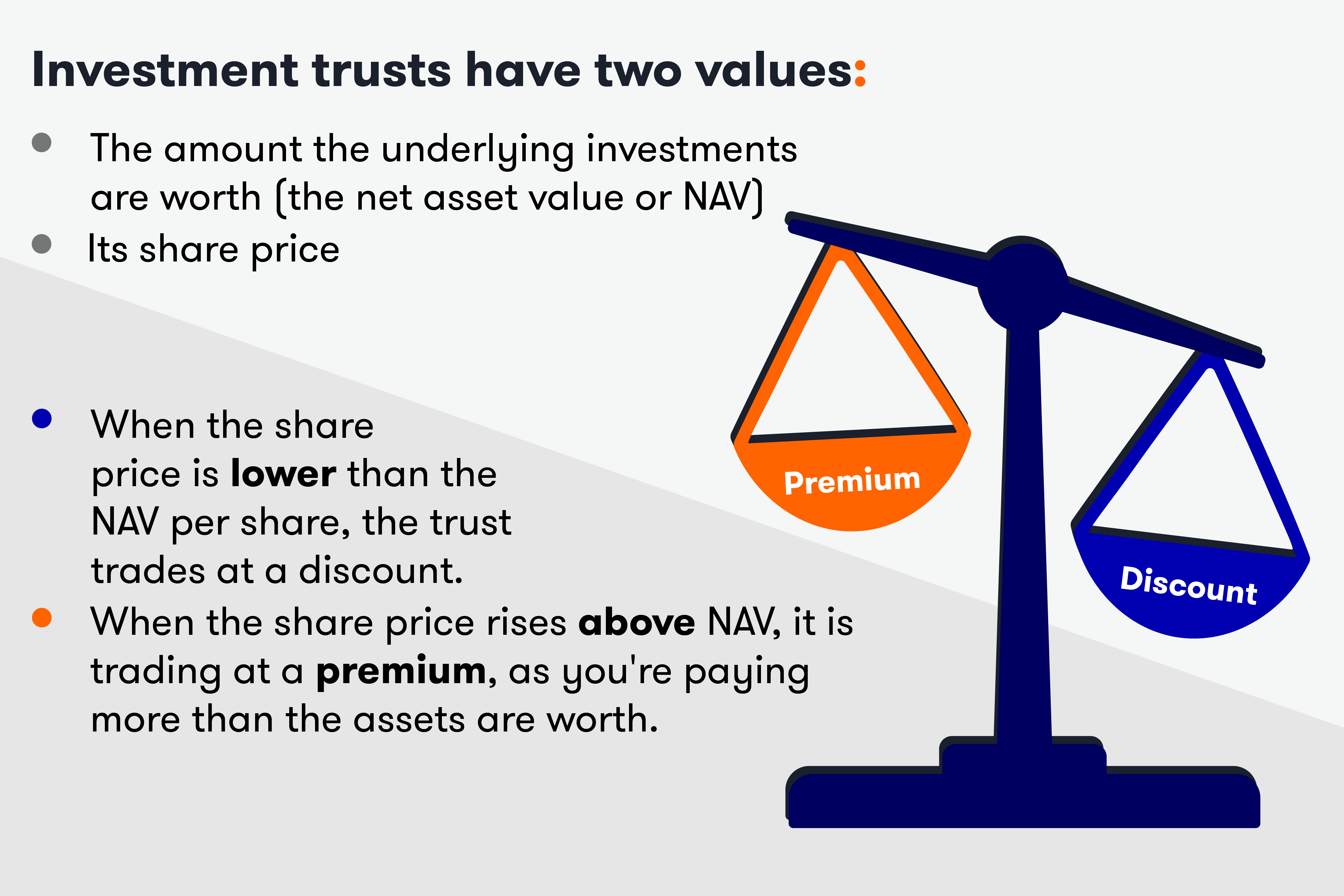Bargain Hunter: 10 growth-focused trusts on notable discounts
5th April 2022 10:45
by Kyle Caldwell from interactive investor
A number of growth-focused trusts are trading at their cheapest levels in six months.

Investors have the opportunity to gain exposure to growth shares on the cheap through investment trusts following the market rotation over recent months.
Stifel, the investment trust analyst, pointed out in a research note last week that a number of growth-focused investment trusts are trading at their cheapest levels in six months. The table below shows the 10 trusts with the widest discounts over this period – to 28 March. Trusts with under £100 million of assets were excluded.
UK trusts are well represented: abrdn UK Smaller Companies Growth (LSE:AUSC), Mercantile (LSE:MRC), Schroder Income Growth (LSE:SCF) and Schroder Income Growth (LSE:SCF).
Stifel said: “A number of UK small and mid-cap specialist trusts are trading on relatively wide discounts following the relative underperformance of this segment in recent weeks. Since the start of 2022, the UK domestically focused FTSE 250 index has fallen by 1%. The FTSE 100 has benefited from its weighting in large oils and mining companies, which have seen positive share price moves.”
Half of the 10 trusts have moved from premiums to discounts, with two big movers being Worldwide Healthcare (LSE:WWH) and Keystone Positive Change (LSE:KPC).
Worldwide Healthcare, which invests in pharmaceutical and biotechnology companies, was trading on a discount of 9% in late March, compared with its six-month range of a 10% discount and 4% premium.
- Trust investors punished as markets fall but are still smiling long term
- Fundamentals: five reasons why investment trusts are different from funds
- A tactic to ride out the inflation storm using these funds and trusts
The shift away from growth to value has proved to be a headwind for trusts specialising in this sector. The other six biotechnology and healthcare investment trusts have all experienced de-ratings. Data from Winterflood shows that the average trust in the sector trades on a discount of 6.2%. Over the past year, trusts have, on average, traded on a small premium of 1.4%.
Keystone Positive Change has also suffered from the market rotation. In late March, its discount stood at 12%, compared with its six-month range of a 13% discount and 3% premium. Baillie Gifford has been managing Keystone Positive Change Investment Trust since last February and it is run in line with the growth-focused Baillie Gifford Positive Change fund. Previously, it invested in UK value shares, and was managed by Invesco. Over the past year, its share price is down 10.7%. The underlying investments – the net asset value – have performed better, positing a smaller loss of 4.7%.
Polar Capital Technology (LSE:PCT) also features in the ‘wide discount’ table. The trust was highlighted as a potential bargain last February, when its discount stood at 6.5%. At the end of March, its discount was 13%.
Its tech-sector rival Allianz Technology Trust (LSE:ATT) is currently trading on a discount of 11.8%. Both trusts exited our top 10 most-popular trust table in March, as investors rejigged portfolios in response to the market rotation, which has been under way since the beginning of 2022.
10 ‘wide’ investment trust discounts
| Investment trust | Current discount (%) | Six-month discount/premium range (%) |
|---|---|---|
| abrdn UK Smaller Companies Growth (LSE:AUSC) | 13 | 13 discount to 2 discount |
| Mercantile (LSE:MRC) | 13 | 13 discount to 6 discount |
| Schroder Income Growth (LSE:SCF) | 3 | 3 discount to 3 premium |
| Polar Capital Technology (LSE:PCT) | 13 | 15 discount to 0 |
| Worldwide Healthcare (LSE:WWH) | 9 | 10 discount to 4 premium |
| Henderson Far East Income (LSE:HFEL) | 2 | 6 discount to 5 premium |
| Finsbury Growth & Income (LSE:FGT) | 6 | 6 discount to 3 discount |
| Keystone Positive Change (LSE:KPC) | 12 | 13 discount to 2 premium |
| Schroder Asian Total Return (LSE:ATR) | 3 | 4 discount to 4 premium |
| JPMorgan Global Emerging Markets Income (LSE:JEMI) | 13 | 18 discount to 7 discount |
Source: Stifel. Data as of market close 28 March 2022.
The rotation explained and why it’s important to strike a balance
Value shares, which are viewed as a better bet than growth shares to prosper, given the post-pandemic economic recovery and higher interest rates, have been in favour. Such companies, which tend to be cyclical, offer ‘jam today’ as their valuations are not based on producing high profits in the future.
Meanwhile, technology and other growth shares are seen as ‘jam tomorrow’ stocks, as their more expensive valuations are hinged on their future earnings potential. Such companies are negatively impacted by high inflation and increases in interest rates because both devalue their expected future earnings.
While the tightening of monetary policy is proving a headwind for growth-focused funds and trusts, it would be a mistake to completely write-off the investment style.
First, it is impossible to time. Investors who made the switch a couple of years ago will have missed out on the strong returns of companies classed as ‘growth’.
Second, even if the rotation has legs there will be winners and losers among both growth and value shares - they will not all go up or down.
As we have explained before, balance is key. It is prudent to have exposure to both growth and value shares, rather than bet on one style over the other.
The widening of growth-focused trust discounts offers investors the chance to buy at a much cheaper price than six months ago.

These articles are provided for information purposes only. Occasionally, an opinion about whether to buy or sell a specific investment may be provided by third parties. The content is not intended to be a personal recommendation to buy or sell any financial instrument or product, or to adopt any investment strategy as it is not provided based on an assessment of your investing knowledge and experience, your financial situation or your investment objectives. The value of your investments, and the income derived from them, may go down as well as up. You may not get back all the money that you invest. The investments referred to in this article may not be suitable for all investors, and if in doubt, an investor should seek advice from a qualified investment adviser.
Full performance can be found on the company or index summary page on the interactive investor website. Simply click on the company's or index name highlighted in the article.